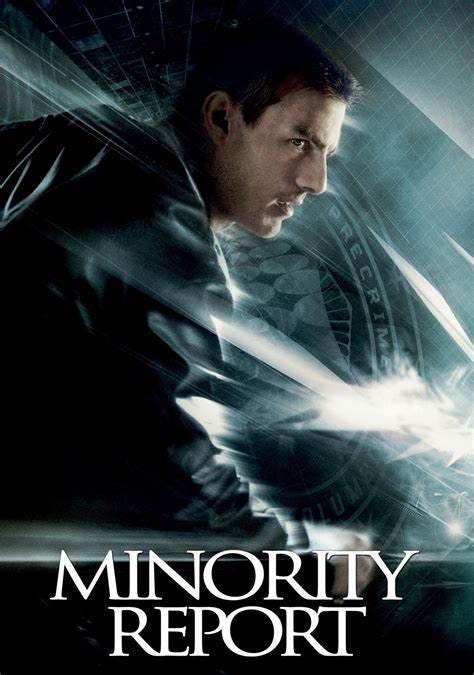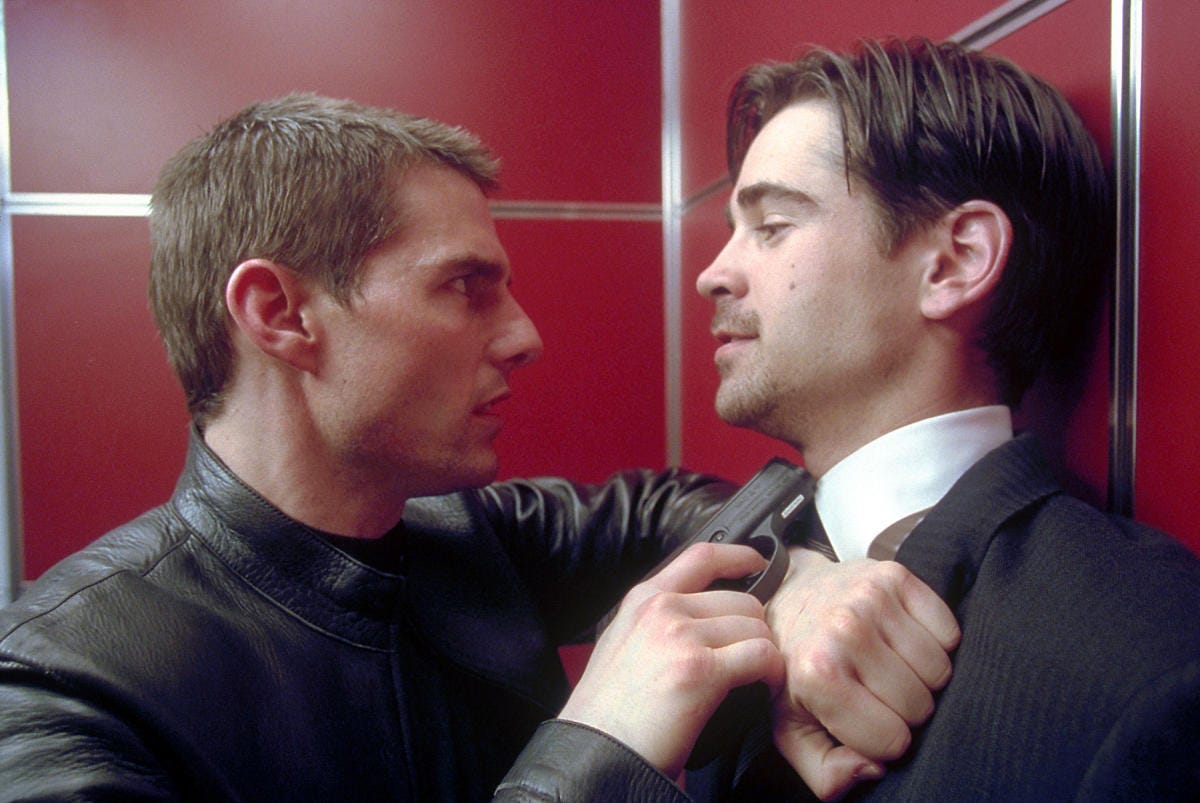Minority Report (2002)
The police/sci-fi movie is a surprisingly common genre mashup. One of the best in this category is Minority Report (2002). This Tom Cruise thriller still holds up over twenty years later as a multifaceted quality film.
Cruise plays John Anderton, the Chief of the Precrime Unit circa 2054. The Precrime Unit uses a trio of psychics to fight crimes that have not yet occurred. The psychics generate a disjointed image of a murder that is destined to occur. The officers under Anderton’s command investigate the future incident and determine who is the perp and when and where the crime will happen. They then race to make the collar before the murder transpires.
The justice system has adapted to this method of criminal detection, allowing crimes to be prosecuted even if they have not yet happened. The “intent” intimated by the psychics is enough.
The plot develops when Anderton himself is implicated in a future homicide. He is on the run, trying to solve his own case.
Cruise is great in this film. Not aways seen as a fantastic actor, he hits the nail on the head as buffy and dedicated cop John Anderton. Despite the futuristic setting both he and his other Precrime officers do a good job giving an accurate portrayal of a detective squad – a lot of waiting, analysis, and brief moments of terror. He is supported by Colin Farrell as the DOJ prosecutor out to get Anderton, and the highly esteemed Max von Sydow as Anderton’s boss. Samantha Morton is the precog that is key to determining the outcome of Precrime.
The fascinating story is based on a 1956 novella by Philip Dick by the same name. Dick was a prolific science fiction writer, penning stories such as The Man in the High Castle, A Scanner Darkly, and the stories that inspired films such as Blade Runner, Total Recall, and Imposter. He is certainly someone whose work I will be taking a look at.
Minority Report was directed by the legendary Stephen Spielberg. He brings a unique approach to the film and diverges from Dick’s original narrative in several ways.
The film is a combination of thriller, mystery, film-noir, and action. There are some deep moral themes that are clear throughout the film. The idea of prosecuting people for future acts is an ethical question that drives the plot. The idea of guilt is also explored. What is beyond a reasonable doubt? Can the justice system get it wrong at the expense of the innocent?
At the time Minority Report could be related to policing’s questions around bias and stereotypes. As policing has evolved, Minority Report is more pertinent, as data, computer systems, and algorithms attempt to create a “predictive policing” model. Is it right or fair to use these to conduct more enforcement in certain neighborhoods or against particular people? All issues to consider while watching this film.
Minority Report runs long at two and half hours. It is a complex film, and Spielberg uses the time to flesh out the various technological peculiarities and numerous subplots. It is not a boring film to say the least. You can catch it for free on Paramount and Showtime or rent it from the usual streaming services. Take a peek into the future of policework, think about the crimes you are going to commit – like that stop sign you are going to roll through tomorrow – and know that John Anderton is watching from some dystopian future. Enjoy!
Thanks for reading The Ops Desk. Stay Safe!






